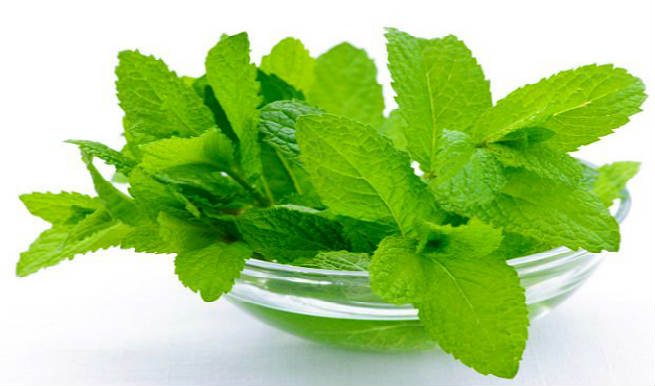A sudden, intense tooth pain often arises when consuming hot or cold substances, causing discomfort. Though transient, this sensitivity is a widespread dental issue experienced globally.
What are the Different Causes of Tooth Sensitivity?
Before knowing the factors promoting tooth sensitivity, let us figure out its cause. A healthy tooth has two parts – (a) a more challenging external part called ‘enamel’ and (b) a softer internal part called ‘dentin.’ Enamel protects dentin when the roots of the tooth remain buried under the gum tissue. But sometimes, the dentin gets exposed due to enamel loss, root erosion, receding gum line, dental cavities, cracks, etc., making the tooth sensitive. It makes thousands of microscopic dentinal tubules or channels come in contact with various food elements (hot, cold, acidic, etc.), reaching the nerves inside the tooth pulp and triggering sudden pain.
Now, here are some of the most common factors that can affect your teeth and worsen the condition of sensitivity to a large extent:
Also Read – Periodontal Disease: Know the Causes, Symptoms and Treatments
- The formation of plaque on teeth surfaces can lead to sensitivity over time.
- The severity of plaque buildup can result in gingivitis, which may eventually cause periodontal disease. Both these conditions can contribute to gum inflammation, thereby promoting sensitivity.
- Receding gum is a prevalent issue in people experiencing periodontal disease. It can expose dentin and push sensitivity.
- If you have one or more cracks in teeth, they may get filled by bacteria and cause acute inflammation in tooth pulps.
- Those who suffer from teeth grinding at night may quickly become the victim of sensitivity.
- Regular use of a hard-bristled toothbrush can be one of the significant causes of tooth sensitivity. It can damage dental enamel badly and expose the dentin.
- Putting excessive pressure on brushing your teeth can be dangerous, leading to gum line recessionline and sensitivity.
- Commercial tooth-whitening products are loaded with harmful chemicals, which may wear down your teeth’ enamel while driving away stains.
- Using acidic mouthwashes for a long can damage the dentin layer and make teeth highly sensitive.
- Too much intake of acidic foods can also be responsible for enamel reduction.
- Specific dental procedures, such as periodontal scaling or cleaning, root planing, cavity filling, crown replacement, and other similar restoration methods, can make your teeth very sensitive. However, it shouldn’t last more than 1- 1.5 months.
Effective Home Remedies for Sensitive Teeth
The problem of teeth sensitivity can be treated successfully with some simple home remedies. We have sorted them out for you here: (1) (2)
Saltwater Rinse
Dissolve two teaspoons of table salt into a glass of lukewarm water. Rinse your mouth with it twice every day to ease dental pain and sensitivity.
Mustard Oil and Rock Salt
Put one teaspoon of rock salt in 1 tablespoon of mustard oil and mix well to form a granular paste. Massage your teeth with it by using your index finger. Let it sit for a few minutes, and rinse it with plain water.
Also Read – Black Spots On The Teeth? Know The Causes And Home Remedies To Say Them ‘Goodbye’
Clove Oil
As an excellent antibacterial and antifungal agent, clove oil is widely used to cure dental sensitivity. You can apply it directly to the troubled teeth or rinse your mouth by mixing it with tepid water.
Guava Leaves
The extract of fresh guava leaves is known to be a magical cure for teeth sensitivity. So, if you are suffering from it, chew a few leaves regularly.
Mint Leaves
The medicinal benefits of mint make it a reliable remedy for sensitive teeth. Add 10-12 fresh mint leaves to 2 cups of water and bring the whole thing to a boil. Cool down the concoction after straining, and rinse your mouth with it.
Mustard Oil and Turmeric
Blend one teaspoon of grated turmeric or turmeric powder with one tablespoon of mustard oil. Apply this paste to sensitive teeth, and you will get fast relief from pain.
Baking Soda and ACV
Prepare a paste of medium consistency by mixing a little amount of apple cider vinegar or ACV with one tablespoon of baking soda. Regular application of it to sensitive teeth will highly benefit you.
Aloe Vera Gel
The calming effects of aloe vera gel are pretty well-known. So, rubbing it on the troubled teeth can soothe the hyperstimulated nerve endings and help you eliminate sensitivity.
Ginger Juice
Extract the juice of a small ginger root and apply it to your sensitive teeth every night before going to bed.
Margosa Leaves
Studies have proved that margosa leaves are also efficient in reducing teeth sensitivity. Hence, you can chew fresh margosa leaves daily to curb this issue.
Apart from all these home remedies, it would be best if you also took some precautions like preventing plaque buildup, using a soft-bristled toothbrush, choosing desensitizing toothpaste, using fluoridated mouthwash, avoiding acidic food substances, and so on to keep your dental sensitivity under control.
Also Read – 5 Home Remedies for Dental Fluorosis (with Causes, Symptoms, and Tips)
Summary
Tooth sensitivity, a common dental issue, stems from exposure to the tooth’s softer dentin due to enamel loss, gum recession, or other factors. Plaque buildup, gingivitis, periodontal disease, cracks, teeth grinding, and abrasive toothbrushes exacerbate sensitivity. Home remedies include saltwater rinses, mustard oil with rock salt, clove oil, guava, and mint leaves, turmeric with mustard oil, baking soda with ACV, aloe vera gel, ginger juice, and margosa leaves. Precautions like plaque prevention and proper dental care can help manage sensitivity.



